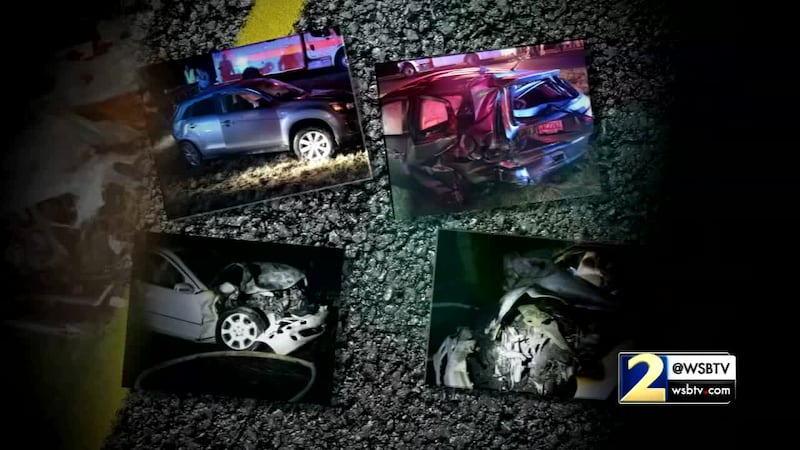ATLANTA — The CEO of Snapchat must answer questions in a Georgia lawsuit, according to documents filed in Spalding County.
Christal McGee crashed along Tara Boulevard in southern Clayton County in September 2015 injuring herself, three passengers in her car and permanently injuring the driver of the other car, Wentworth Maynard.
Heather McCarty, who was in the car that night, told Channel 2 Action News in 2016 that she remembers the highest speed she saw on McGee’s phone was 113 mph right before the crash.
Karen and Wentworth Maynard have sued the company. They allege McGee told her three passengers right before the crash that she was trying to go at 100 mph, to post it on Snapchat.
Snapchat disabled its speed filter in 2021 after criticism it encouraged dangerous driving.
Now, a Spalding County judge wants to hear from the company’s CEO, Evan Spiegel.
“According to (Snapchat’s) discovery responses, Mr. Spiegel is one of two (Snapchat) employees remaining at the company who conceived, proposed, and/or approved the speed filter which is the subject of this litigation,” the judge wrote. “(Snapchat) has identified Mr. Spiegel as the only person who approved the eventual removal of the speed filter.”
The Maynards claim Snapchat was negligent in designing the speed filter.
RELATED STORIES:
- EXCLUSIVE: Passengers say 100 mph crash encouraged by Snapchat ‘speed filter’
- Judge dismisses case against Snapchat in suit over serious wreck
- Snapchat tries to get Georgia crash case dismissed, says teen driver was not on app
“He was in a coma, spent five weeks in intensive care. He has a brain injury that is permanent. His wife is having to take care of him,” said Todd Henningsen, one of Wentworth Maynard’s attorneys told Channel 2 Action News in 2016.
Maynard had just turned right out of his apartment complex onto Tara Boulevard where the speed limit is 55.
A crash reconstruction expert examined both vehicles and determined McGee’s car was traveling 107 mph at the time of impact.
In 2022, the Georgia Supreme Court ruled that Snapchat must face the Maynards’ claims.
Snapchat argued that its speed filter was no more harmful than a vehicle capable of going faster than 100 mph, pointing out that no court had ever held that manufacturers have a duty under the law to prevent cars from going that fast. The company said its speed filter was misused by McGee, who failed to heed its warning not to use the app while driving.
Snapchat sent us a statement at the time of our original reporting saying: “No Snap is more important than someone’s safety. We actively discourage our community from using the speed filter while driving, including by displaying a “Do NOT Snap and Drive” warning message in the app itself.”
The statement continues, “The complaint filed in this case is not factually accurate. Among other things, Snapchat has never offered in-app trophies or additional points for using the speed filter.”
RELATED NEWS:
©2024 Cox Media Group






